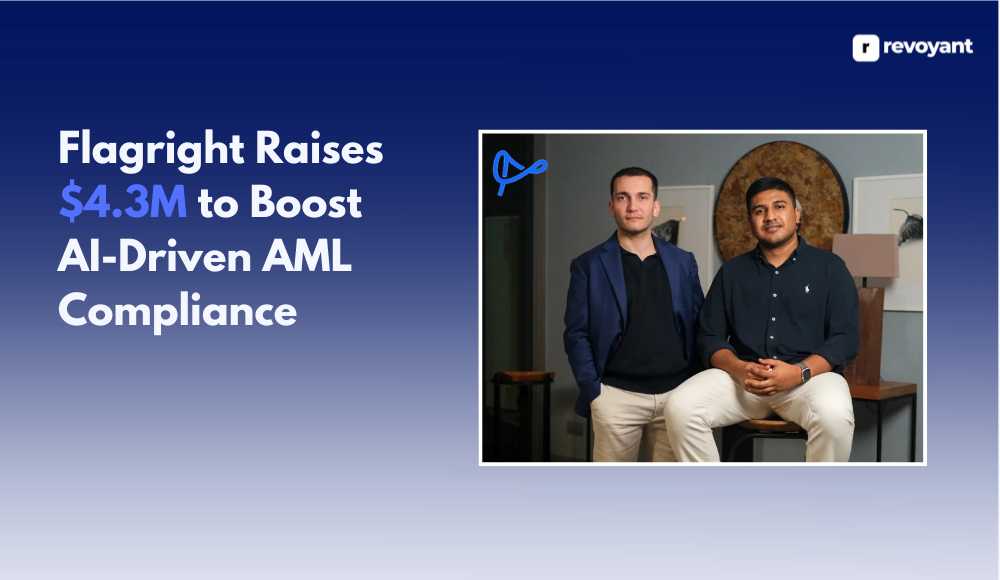Imagine turning your ideas into reality with just a few words. A simple description becomes a detailed image, and a rough idea transforms into polished artwork, all in just seconds. AI image generation makes it easy for anyone—from professionals to beginners—to produce high-quality images without professional design skills.
With so many options available, how do you pick the right AI image generation software? This guide will help. We’ll break down how these tools work, what features to look for, and the challenges you might face. Most importantly, we’ll show you how AI can push your creativity, save you time, and help you come up with ideas you might not have considered before.
Let’s explore how AI can boost your creativity and find the best software for your needs.
What is AI Image Generation Software?
AI image generation software uses artificial intelligence, like machine learning (ML) and deep learning, to create images based on the information you give it. The software learns from large collections of images and finds patterns to create new visuals, whether realistic or artistic.
For example, users can type in a description like “a sunset over a mountain,” and the AI will create an image that matches the description. You can also provide specific details, like color schemes, and the AI will include those in the image. This technology is helpful in fields like digital art, marketing, product design, game development, and even creating personalized content.
Features of AI Image Generation Software
Here are the key features of AI image generation software:
- Text-to-Image Generation
The text-to-image feature allows users to generate images from written descriptions. You simply type a phrase, and the software creates an image that matches the description.
- Style Transfer
AI tools can take the artistic style of one image and apply it to another. This is useful for users who want to generate images that mimic famous art styles or maintain a consistent design theme across different visuals.
- Customization and Parameters
Many AI image generation tools allow users to fine-tune the output by adjusting parameters such as color, style, texture, or detail level.
- Image Editing
Some software combines generation with editing capabilities. After creating an image, you can further refine it by changing elements, adjusting lighting, or adding new features.
- Batch Processing
If you need to generate multiple images at once, batch processing allows you to input several prompts and generate multiple outputs in a fraction of the time.
- High-Resolution Output
For professionals working in industries that require high-quality visuals, like marketing or print, high-resolution image generation is essential. Ensure the software can produce images that meet your resolution standards.
- Template Libraries
Some AI tools come with a library of pre-designed templates to help users create common types of images like banners, ads, and product visuals, making the process faster and more accessible.
Who Uses AI Image Generation Software?
| User | Used for |
|---|---|
| Graphic Designers | Generate visuals for social media, blogs, and ads faster and at a lower cost. |
| Content Creators & Marketers | Generate visuals for social media, blogs, and ads faster and at lower cost. |
| Game Developers | Create concept art, characters, and assets for video games quickly. |
| Product Designers | Generate prototypes and visualize products in different styles before production. |
| Advertising Agencies | Experiment with new art styles, generate artwork, and explore creative ideas. |
| Artists & Hobbyists | Experiment with new art styles, generate artwork, and explore creative ideas. |
Benefits of AI Image Generation Software
AI image generation software offers a variety of benefits, making it an invaluable tool for professionals and beginners alike:
- Faster Production
AI software can create images in seconds, significantly speeding up the creative process. Whether you’re working on a marketing campaign or designing a product, these tools help save time.
- Cost Savings
Instead of hiring graphic designers or purchasing expensive stock images, businesses and individuals can use AI tools to generate images at a fraction of the cost.
- Enhanced Creativity
AI image generation offers a way to experiment with new styles and ideas. By allowing you to input different prompts and parameters, the software helps spark creative ideas and explore new design possibilities.
- Customization
AI software allows you to tailor images to your exact specifications, ensuring that the visuals generated meet your brand’s or project’s requirements.
- Consistency
For businesses that need a cohesive visual style across their content, AI image generation tools can help maintain consistency by generating images that fit specific design guidelines or themes.
Challenges of AI Image Generation Software
Despite the benefits, there are some challenges to consider when using AI image generation software:
- Quality Control
AI-generated images might not always meet the high-quality standards expected, especially in detailed and complex designs. In some cases, human oversight is necessary to refine the final output.
- Limited Creativity
While AI can generate images based on input data, it may struggle to create truly original content beyond the patterns and rules it has learned. Human creativity still plays a crucial role in design.
- Ethical Concerns
AI image generation brings up questions about who owns the content and whether it’s original. Some people wonder if AI-created images are truly unique or if they might copy parts of existing works, raising concerns about intellectual property rights.
- Data Privacy
Using cloud-based AI tools may require you to upload data, raising concerns about privacy and security. Be sure to choose software that complies with data protection regulations.
Alternatives to AI Image Generation Software
| Alternative | Description |
|---|---|
| Traditional Design Software | Programs like Adobe Photoshop or Illustrator give full control over the design process. These tools are great for professionals who want hands-on creativity and flexibility. |
| Hiring Professional Designers | For businesses needing custom, high-quality images, hiring a professional designer may be the best choice. A designer can bring creativity and detail that AI tools might miss. |
| Stock Image Libraries | Plaftorms like Shutterstock or Unsplash offer ready-made images for different projects. While not as flexible as AI-generated images, they are useful for quick and easy solutions. |
Costs of AI Image Generation Software
AI image generation software comes in different price ranges depending on the features and user requirements. Here are some common pricing models:
| Pricing Model | Description |
|---|---|
| Subscription | Monthly or yearly plans, with basic and premium options offering different features. |
| Pay-Per-Use | Pay based on the number of images or features used, good for occasional users. |
| Enterprise | Custom pricing for large businesses needing advanced features and support. |
| Freemium | Free versions with limited features, great for beginners. |
How to Buy the Right AI Image Generation Software
When selecting AI image generation software, here are a few steps to ensure you make the right decision:
| Step | Description | Action |
|---|---|---|
| Identify Your Needs | Define the tasks you want the software to handle, like creating visuals or high-quality artwork. | Clarify your goals to narrow down options. |
| Evaluate Features | List key features such as text-to-image generation or batch processing. | Find software that meets your needs. |
| Test the Software | Use free trials or demos to see if it’s easy to use and fits your workflow. | Test and assess usability. |
| Consider Scalability | Choose software that can grow with your needs as they expand. | Check if it supports future growth. |
| Check Customer Support | Look for vendors that offer strong support, like tutorials and live help. | Ensure help is available when needed. |
Implementation of AI Image Generation Software
Once you’ve selected the right AI image generation software, successful implementation is key:
- Train Your Team
Ensure that your team is familiar with the software’s features and knows how to use it effectively.
- Integrate with Existing Tools
Make sure the AI software integrates seamlessly with your other design or content management tools to streamline your workflow.
- Monitor Performance
After setting up the AI image generation software, regularly check its performance to make sure it meets your quality standards. Adjust settings if needed and keep the software updated to get new features and improvements.
- Gather Feedback
Collect feedback from your team or users on how the software is contributing to your workflow. Find out if they’re facing any challenges, and offer extra training or make changes to how the software is used to solve those issues.
- Scale Usage Over Time
As your needs grow, you can begin to scale up your use of AI image generation tools. Whether it’s expanding to larger projects, generating more images, or leveraging advanced features, ensure that the software continues to support your increasing demands.
Latest Trends in AI Image Generation Software
AI image generation software is constantly evolving. Here are some of the latest trends:
- AI for Realistic Image Creation
AI is becoming more sophisticated in generating hyper-realistic images. This is particularly valuable for industries like product design, film, and advertising where realism is critical.
- Integration with Augmented Reality (AR)
AI image generation is starting to merge with AR applications. This allows users to create and view AI-generated content in a 3D, interactive environment, which is especially useful for e-commerce and gaming.
- Generative Adversarial Networks (GANs)
GANs are powerful AI technology that can create more complex and creative visuals. These networks allow AI systems to generate entirely new images that push the boundaries of design and art.
- AI-Generated Video and Motion Graphics
AI tools are now being designed to create short video clips and motion graphics, not just still images. This is a big benefit for content creators and marketers who want eye-catching, dynamic visuals.
- Ethical and Legal Considerations
As AI becomes more powerful, there is growing awareness around the ethical use of AI-generated images, especially regarding originality and intellectual property. Users are now looking for AI tools that provide clear guidelines on ethical usage and compliance with intellectual property laws.
Conclusion
AI image generation software is like a creative partner that helps bring your ideas to life quickly and accurately. Whether you’re creating visuals for a project, designing game assets, or just exploring new ideas, finding the right software is important for unlocking creative potential.
Take the time to see what fits your workflow, try different options, and think about how it can grow with your needs. With the right choice, you’ll not only save time but also expand your imagination and improve the quality of your work in ways you never imagined possible.



